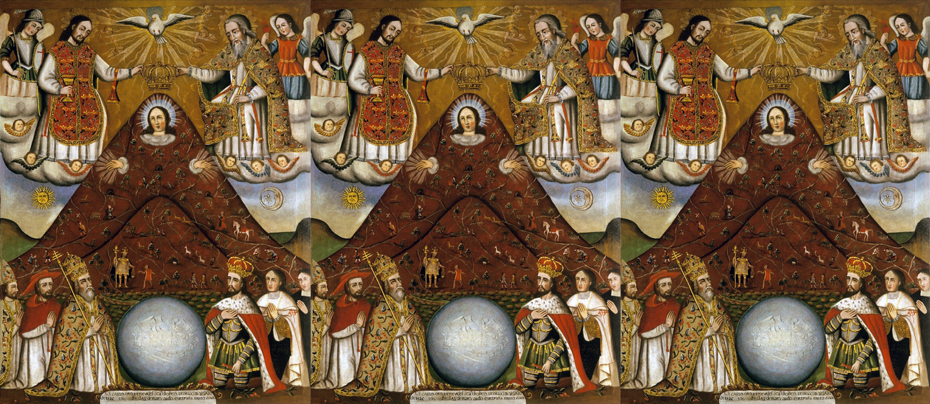Marisol de la Cadena
University of California, Davis
Friday, October 19, 2–2:45 PM
Smathers Library 100
University of Florida
University of Florida
Join us for an informal conversation with Marisol de la Cadena, Professor of Anthropology, University of California, Davis. We will discuss Professor de la Cadena’s 2015 essay “Uncommoning Nature,” a call to readers to engage with the anthropo-not-seen, the heterogenous, indigenous, durable and emergent worlds beyond the technoscientific focus of the Anthropocene. Dating from the fifteenth century in what became the colonized Americas, the anthropo-not-seen was, and continues to be, a process of destruction of these alternative worlds and the impossibility of such destruction. It might very well represent the first historical apocalypse: the will to end many worlds that produced a one-world vision that has blinded us to other visions of possibility.
Professor de la Cadena’s essay, originally published in the journal e-flux, is available online here:
We encourage you to read the essay ahead of time.
This conversation with Marisol de la Cadena is one of several UF events during “The World to Come: Art, Politics, and Climate Change”, an interdisciplinary symposium (Oct. 19–20, 2018) in conjunction with the Samuel P. Harn Museum of Art exhibition The World to Come: Art in the Age of the Anthropocene (Sept. 18, 2018–Mar. 3, 2019), featuring experimental artistic practices, scientific fieldwork, and anthropological research in response to the greatest planetary crisis of our era. The symposium will include lectures, roundtable discussions, and conversations with attendees by invited guest speakers and UF faculty. Together we will confront the challenges of artistic, political and personal practice in the late Anthropocene, in search of ways forward to a more vibrant, compassionate and just future.
“Uncommoning Nature” and “The World to Come: Art, Politics, and Climate Change” are presented by the Samuel P. Harn Museum of Art and Imagining Climate Change. All events during the symposium are free and open to the public.
About the Speaker
Marisol de la Cadena is Professor of Anthropology at the University of California, Davis. Her work includes the study of politics (including ontological politics), multispecies, indigeneity, history and the ahistorical world, world anthropologies and the anthropologies of worlds. De la Cadena is interested in the perspectives and interface of science and the humanities, encompassing humans, animals, and “things.” She also focuses on life-and-death conditions of ecological and political change in a time of extreme droughts, floods, and war. Her books include Earth Beings: Ecologies of Practice across Andean Worlds (2015); Cultures of Race and Hybridity in Latin America (2011); Formaciones de indianidad: Articulaciones raciales, mestizaje, y nacion en America Latina (2008); and Indigenous Mestizos: The Politics of Race and Culture in Cuzco, Peru (1910–1991) (2000). De la Cadena was a recipient of the John E. Sawyer Mellon-Sawyer Seminar on the Comparative Study of Cultures (2012–16), and she received the John Simon Guggenheim Memorial Foundation Research Fellowship (2008).
Support for the “Uncommoning Nature” and “The World to Come” is from the National Endowment for the Arts, the Andy Warhol Foundation, UF Center for Humanities & the Public Sphere (Rothman Endowment), Harn Eminent Scholar Chair in Art History Lecture Series (keynote), UF Imagining Climate Change, UF Office of Research, the George A. Smathers Libraries, and the generosity of several private donors.
Check out the Facebook event.
Image: Anonymous, Virgen-Cerro, c. 1730. Museo de la Casa Nacional de Moneda, Potosí. The painting represents an Earth-being that is also a mountain, occupied by the Virgin and guarded by the Church, from where the Devil might have been expelled.
